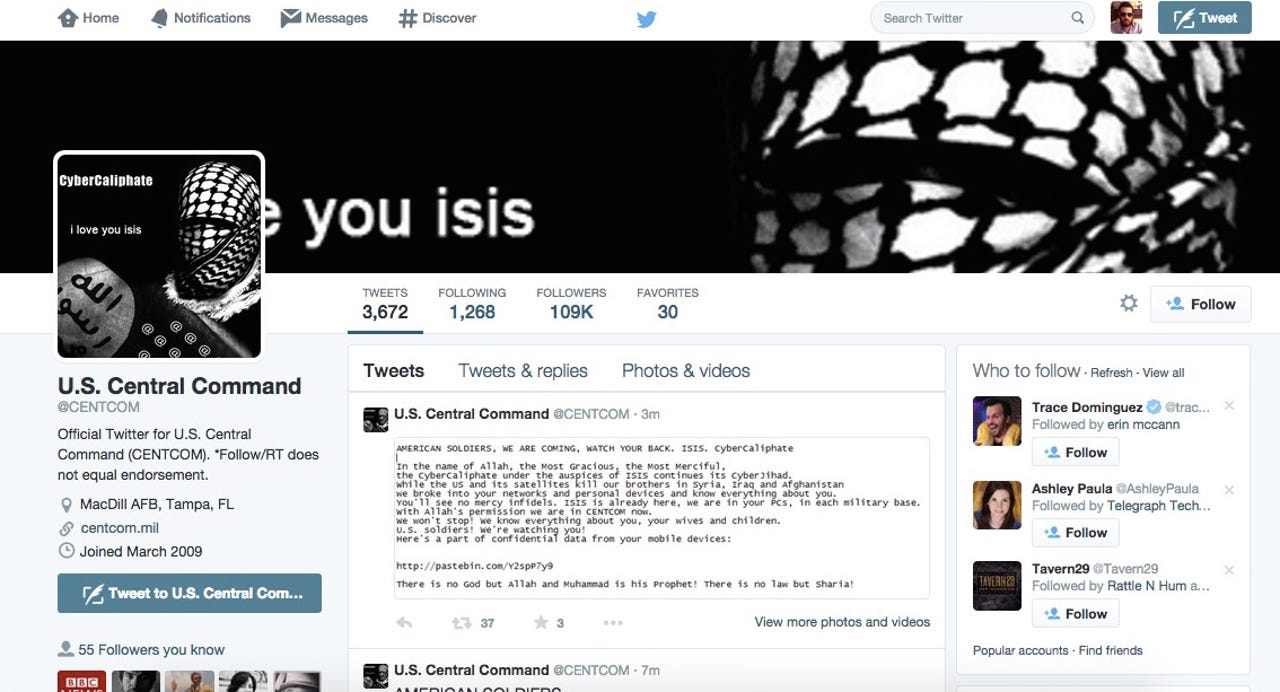Pro-ISIS hackers claim breach at U.S. Central Command

Hackers claiming to be linked to the Islamic State terrorist group have attacked the U.S. Central Command's social media accounts.
On Monday, as President Obama was giving a speech on cybersecurity at the Federal Trade Commission in Washington D.C., the attackers took control of the @CENTCOM account.
The hackers, who call themselves the "CyberCaliphate," tweeted photos and links to a Pastebin post, offering download links to files it says were stolen from the military agency's networks.
"We broke into your networks and personal devices and know everything about you," the hackers wrote. "ISIS is already here, we are in your PCs, in each military base."
Files allegedly stolen by the hackers are dated as far back as 2005, with some more recent. About two-dozen files in separate folders, ranging from PowerPoint slides to Adobe PDF documents, are either marked "for official use only" or unmarked.
It does not appear that any classified documents have been stolen from the military agency, after a brief examination of the files.
A U.S. Central Command spokesperson confirmed that the Twitter account had been breached, but had nothing further at the time.
Later, a statement read: "We can confirm that the CENTCOM Twitter and YouTube accounts were compromised earlier today. We are taking appropriate measures to address the matter."
The Twitter account breach comes a few days after the same hacker is said to have attacked a number of other media outlets' social media accounts. The Albuquerque Journal, and CBS and Fox affiliates in Maryland, and a station in Tennessee earlier this week were all attacked.
Update at 2:55pm ET: with updated statement from CENTCOM.
